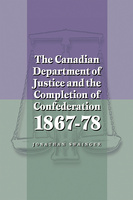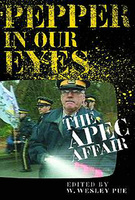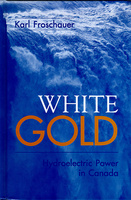Indigenous Cultures in an Interconnected World
Increasingly, Indigenous people are being drawn into global networks. In the long term, cultural isolation is unlikely to be a viable – even if sometimes desired – option, so how can Indigenous people protect and advance their cultural values in the face of pressure from an interconnected world?
Quasi-Democracy?
Parties and Leadership Selection in Alberta
In Quasi-Democracy? David Stewart and Keith Archer examine political parties and leadership selection in Alberta using mail-back surveys administered to voters who participated in the Conservative, Liberal, and NDP leadership conventions elections of the 1990s.
The Canadian Department of Justice and the Completion of Confederation 1867-78
Drawing on legal records and other archival documents, Jonathan Swainger considers the growth and development of the ostensibly apolitical Department of Justice in the eleven years after the union of 1867.
Regionalism, Multilateralism, and the Politics of Global Trade
This volume explores the changing relationship between regionalism and multilateralism and examine the implications for national policy in a global trading system.
Prometheus Wired
The Hope for Democracy in the Age of Network Technology
Describing and documenting the actual effects of computer networks on people's experience in the workplace, marketplace, and community, the book argues that the conditions of surveillance and corporate control far outweigh those of information access as key elements in the social and political presence of network computing.
Pepper in Our Eyes
The APEC Affair
In November 1997, the world media converged on Vancouver, Canada to cover a meeting of the Asia Pacific Economic Cooperation (APEC). A predictable student protest met unusually strong police response.
Protecting Indigenous Knowledge and Heritage
A Global Challenge
An international appraisal of how current legal regimes worldwide fail to protect Indigenous knowledge and what needs to change
Rebuilding Canadian Party Politics
This book is about the collapse of Canadian party politics in the early 1990s, about the end of a party system that had governed Canada's national politics for several decades, and about the ongoing struggle to build its successor.
The Burden of History
Colonialism and the Frontier Myth in a Rural Canadian Community
White Gold
Hydroelectric Power in Canada
White Gold looks at what went wrong with hydro development, with the predicted industrial transformation, with the timing and magnitude of projects, and with national and regional initiatives to link these major projects to a trans-Canada power grid.
Urban Indian Reserves
Forging New Relationships in Saskatchewan
A much needed discussion on creating collaborative local treaty land arrangements, where First Nations and municipal governments are shaping the future of their respective communities as well as providing a model for other communities.
Houser
The Life and Work of Catherine Bauer, 1905-64
Catherine Bauer changed forever the concept of social housing and inspired a generation of urban activists to integrate public housing into the emerging welfare state of the mid-20th century. She was one of a small group of idealists who called themselves “Housers” because of their commitment to raising the quality of urban life through improving shelter for low-income families.
Once Upon an Oldman
Special Interest Politics and the Oldman River Dam
Once Upon an Oldman is an account of the controversy that surrounded the Alberta government's construction of a dam on the Oldman River to provide water for irrigation in the southern part of the province.
Communities, Development, and Sustainability across Canada
This book bridges the gap between theory and practice, bringing together concerned parties who have argued for increased local participation in sustainable community development.
Parties, Candidates, and Constituency Campaigns in Canadian Elections
This important contribution to the study of Canadian elections forcefully argues that knowledge of the dynamics at the local level is essential to a full understanding of Canadian polity, its underlying social basis, and the factors that determine successful election campaigns.













